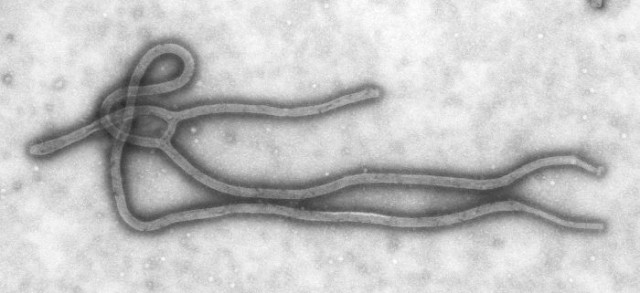General Discussion
Related: Editorials & Other Articles, Issue Forums, Alliance Forums, Region ForumsHere's one GMO I don't suspect I'd boycott.
GMO tobacco may have saved those two Americans from Ebola, and it has promise in the treatment of other diseases:

by John Timmer - Aug 4 2014, 12:51pm CST
CNN reported Monday that the two US citizens who were flown back to the states after contracting the Ebola virus were given an extremely experimental treatment, one that's still undergoing animal testing. While the treatment involves antibodies, it's not a vaccine, and it can work effectively even after an infection has started. The process that produced it is a testament to the impressive capabilities developed in the field of biotechnology.
The Ebola virus, known for its horrific symptoms and high fatality rate, currently has no established treatment. The health care workers who are fighting the disease—and are thus at high risk for becoming infected themselves—can do little more than put themselves in isolation and try to compensate for the damage the virus causes. That situation was apparently the case for two Americans who contracted the virus while working in Liberia.
In this case, however, both people were apparently given an experimental treatment developed in part by a company called Mapp Biopharmaceutical. Complicating matters, Mapp licenses its developments to a company called LeafBio for production and distribution. But LeafBio has also licensed an Ebola treatment from a second company, called Defyrus, and it plans on combining the two. It's unclear whether the Americans received the original or combined therapy. In either case, both therapies were based on the same developmental process outlined below.
Fortunately, Mapp has been publishing papers describing its progress on an Ebola treatment as it went along, so it's possible to understand how the therapy was developed and how it operates.
...
Arst Technica link
Abstract
Filovirus infections can cause a severe and often fatal disease in humans and nonhuman primates, including great apes. Here, three anti-Ebola virus mouse/human chimeric mAbs (c13C6, h-13F6, and c6D8) were produced in Chinese hamster ovary and in whole plant (Nicotiana benthamiana) cells. In pilot experiments testing a mixture of the three mAbs (MB-003), we found that MB-003 produced in both manufacturing systems protected rhesus macaques from lethal challenge when administered 1 h postinfection. In a pivotal follow-up experiment, we found significant protection (P < 0.05) when MB-003 treatment began 24 or 48 h postinfection (four of six survived vs. zero of two controls). In all experiments, surviving animals that received MB-003 experienced little to no viremia and had few, if any, of the clinical symptoms observed in the controls. The results represent successful postexposure in vivo efficacy by a mAb mixture and suggest that this immunoprotectant should be further pursued as a postexposure and potential therapeutic for Ebola virus exposure.
Link to Abstract
CaliforniaPeggy
(149,660 posts)MohRokTah
(15,429 posts)And I'm surprised at how promising this technology looks for other viruses.
OilemFirchen
(7,143 posts).0065ppm, gallon of tap water, poured at 5ml/sec over a Swarovski crystal unicorn.
Been doing it for years, and no Ebola yet.
Algernon Moncrieff
(5,790 posts)Pure science -- you never know!
MohRokTah
(15,429 posts)This represents the true promise of genetic modification in the laboratory.
The same can be applied to agriculture, but current GMO technology is more about profit and less about benefit.
NightWatcher
(39,343 posts)Sure, they may try to save the few white doctors who can afford to pay (or provide them with PR), but will they fly free vaccines into the countries where it's active?
MohRokTah
(15,429 posts)profitable treatment in history. And it could even be extremely profitable at a very affordable price since the application goes to nearly any virus.
muriel_volestrangler
(101,337 posts)The army may well have decided it needs a treatment for Ebola in case it ever gets sent into an epidemic. Now, if they've any sense, they'll make it available for general use - they could ask international bodies for the actual cost of manufacture (which, given the steps the OP describes, isn't trivial). After all, the World Bank has just pledged $200 million to fight the current outbreak. That way, the US would look very good in the eyes of the world.
muriel_volestrangler
(101,337 posts)of how the treatment appears to be produced.